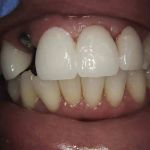Introduction to Recognizing Dental Issues
Maintaining good oral health is crucial for overall well-being. Cavities and gum disease are two of the most common dental problems affecting people today. They can lead to serious complications if left untreated, such as tooth loss or systemic health issues. Understanding how to identify these conditions early can save time, money, and prevent discomfort. This article from Dentistry Toothtruth will guide you through recognizing the signs and symptoms of cavities and gum disease, ensuring you take action promptly.
Identifying Signs of Cavities
The first step in recognizing a cavity is understanding its symptoms. Cavities, also known as dental caries, often start as a small hole in the tooth. Initially, you may not notice them until they progress. Common signs include toothache or pain when eating, visible pits or holes in your teeth, and sensitivity to sweets, hot or cold foods, and beverages. Using regular dental check-ups and x-rays, your dentist can catch cavities before major damage occurs. According to the CDC, nearly 91% of adults aged 20 to 64 had dental caries in 2011-2012, emphasizing the importance of early detection.
Recognizing Gum Disease Symptoms
Gum disease, or periodontal disease, starts as gingivitis and can progress to more severe conditions if not treated. Initial signs include red, swollen, or bleeding gums, especially after brushing or flossing, persistent bad breath, and a receding gum line. As it advances, gum disease can cause loose teeth or painful chewing. The National Institute of Dental and Craniofacial Research notes that about 47% of adults aged 30 years and older have some form of periodontal disease. Regular check-ups can help diagnose and manage this condition effectively.
The Importance of Regular Dental Check-ups
Preventive care is vital for maintaining oral health. Regular visits to your dental office allow your dentist to inspect your teeth and gums thoroughly, catch any emerging issues, and provide professional cleaning to remove plaque build-up, which often leads to cavities and gum disease. It is recommended by the American Dental Association to visit the dentist at least twice a year. These routine visits are opportunities to receive personalized advice on oral hygiene and necessary treatments.
Actionable Steps for Prevention and Treatment
Once cavities or gum disease are detected, taking prompt action is crucial. Treatment for cavities often involves removing the decayed area and filling the cavity, while gum disease may require deep cleaning, medication, or surgery in severe cases. To prevent these conditions, practice good oral hygiene: brush twice daily with fluoride toothpaste, floss regularly, and maintain a balanced diet. Additionally, reduce sugary food and beverage consumption, as they are major contributors to tooth decay and gum disease.
Conclusion: Taking Control of Your Dental Health
Being proactive in recognizing and addressing signs of cavities and gum disease can significantly improve your oral health and quality of life. By understanding the symptoms and seeking timely dental care, you protect your smile and prevent future complications. Remember, regular dental check-ups and diligent at-home oral care are your best defenses against these common dental issues. For more personalized guidance and care, visit Dentistry Toothtruth and schedule your next appointment.







 Wheat Family Dental4.0 (1791 review)
Wheat Family Dental4.0 (1791 review) Gardner & La Rochelle Orthodontics4.0 (304 review)
Gardner & La Rochelle Orthodontics4.0 (304 review) Smile Dental of New Rochelle5.0 (242 review)
Smile Dental of New Rochelle5.0 (242 review) Lloyd Family Dental Care4.0 (98 review)
Lloyd Family Dental Care4.0 (98 review) Shawn O'Berry DDS5.0 (26 review)
Shawn O'Berry DDS5.0 (26 review) Pearl Family Dental Care4.0 (123 review)
Pearl Family Dental Care4.0 (123 review) The Importance of Oral Health Education During Pregnancy for a Healthy Pregnancy
The Importance of Oral Health Education During Pregnancy for a Healthy Pregnancy Best Tips for Brushing Your Teeth Properly for Healthy Gums: Essential Techniques for Oral Health
Best Tips for Brushing Your Teeth Properly for Healthy Gums: Essential Techniques for Oral Health Why Skipping Dental Checkups Can Lead to Bigger Oral Health Problems
Why Skipping Dental Checkups Can Lead to Bigger Oral Health Problems Advantages of Porcelain Dental Restorations
Advantages of Porcelain Dental Restorations How Can Diabetes Cause Tooth and Gum Problems? Preventing and Managing Oral Health Issues
How Can Diabetes Cause Tooth and Gum Problems? Preventing and Managing Oral Health Issues Healthy Habits for Promoting Good Oral Health and Hygiene: Tips for a Healthy Smile
Healthy Habits for Promoting Good Oral Health and Hygiene: Tips for a Healthy Smile